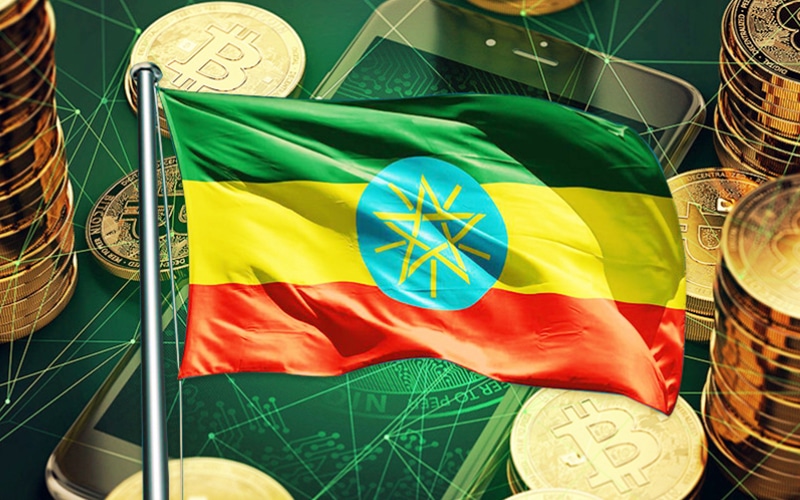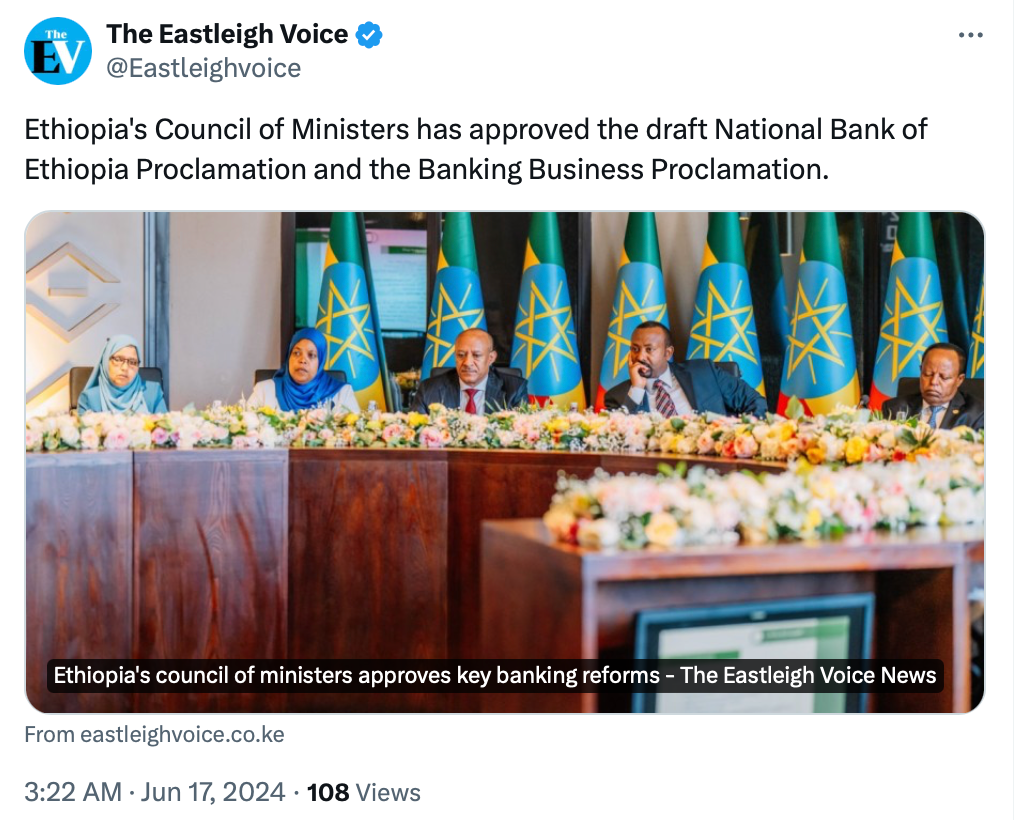Ethiopia’s central bank prepares legal framework for CBDC as part of economic reform.

Two proclamations have been formulated by the National Bank of Ethiopia (NBE) as part of an economic reform strategy. One of them is the establishment of a legal framework for the introduction of a central bank digital currency (CBDC).
The proclamations have been endorsed by the Council of Ministers and will be introduced into the House of Representatives in the near future.
The NBE Proclamation anticipates policy modifications that include the establishment of a legal framework for a CBDC “as required,” as well as the expansion of the NBE’s capital and the establishment of a legal foundation for consumer protection.
The Banking Business Proclamation that accompanies this document pertains to the establishment of a regulatory laboratory for innovative financial solutions, the liberalization of foreign investment in banking, and corrective measures for “problem” banks.
The proclamations are a component of the government’s Homegrown Economic Reform Agenda. In April, The Reporter, a privately owned Ethiopian publication, reported on the government’s interest in establishing a CBDC.
It was stated that a study would be initiated in June. It was also stated that the NBE intends to become a member of the “Cross Border Payment System” by December. It did not furnish any specifics regarding that system.
Ethiopia has already implemented measures to promote economic liberalization, such as terminating the state’s monopoly on mobile money services. The nation has implemented blockchain-based digital infrastructure for the purpose of processing substantial government payments.

Despite obstacles such as low internet penetration, the adoption of cryptocurrency is gaining momentum in numerous African countries. Cryptocurrency introductions have not been entirely successful.
It is important to note that the Central African Republic adopted Bitcoin as its currency and introduced a non-CBDC government cryptocurrency called the Sango, which was met with limited success. There is currently no functioning website for the Sango currency.
Ethiopia continues to prohibit the use of digital currencies, despite the licensing of “dozens” of data mining firms that have attempted to exploit the country’s inexpensive electricity to mine cryptocurrency. Additionally, preparations were underway to implement the Web3 Fuse payment system in that location.
At least 18 African countries are conducting research on CBDCs. The eNaira, which was introduced in 2022 as the world’s second live CBDC, has met with varying degrees of success in Nigeria. Zimbabwe implemented the most recent currency on the basis of a government-issued gold-based token.
